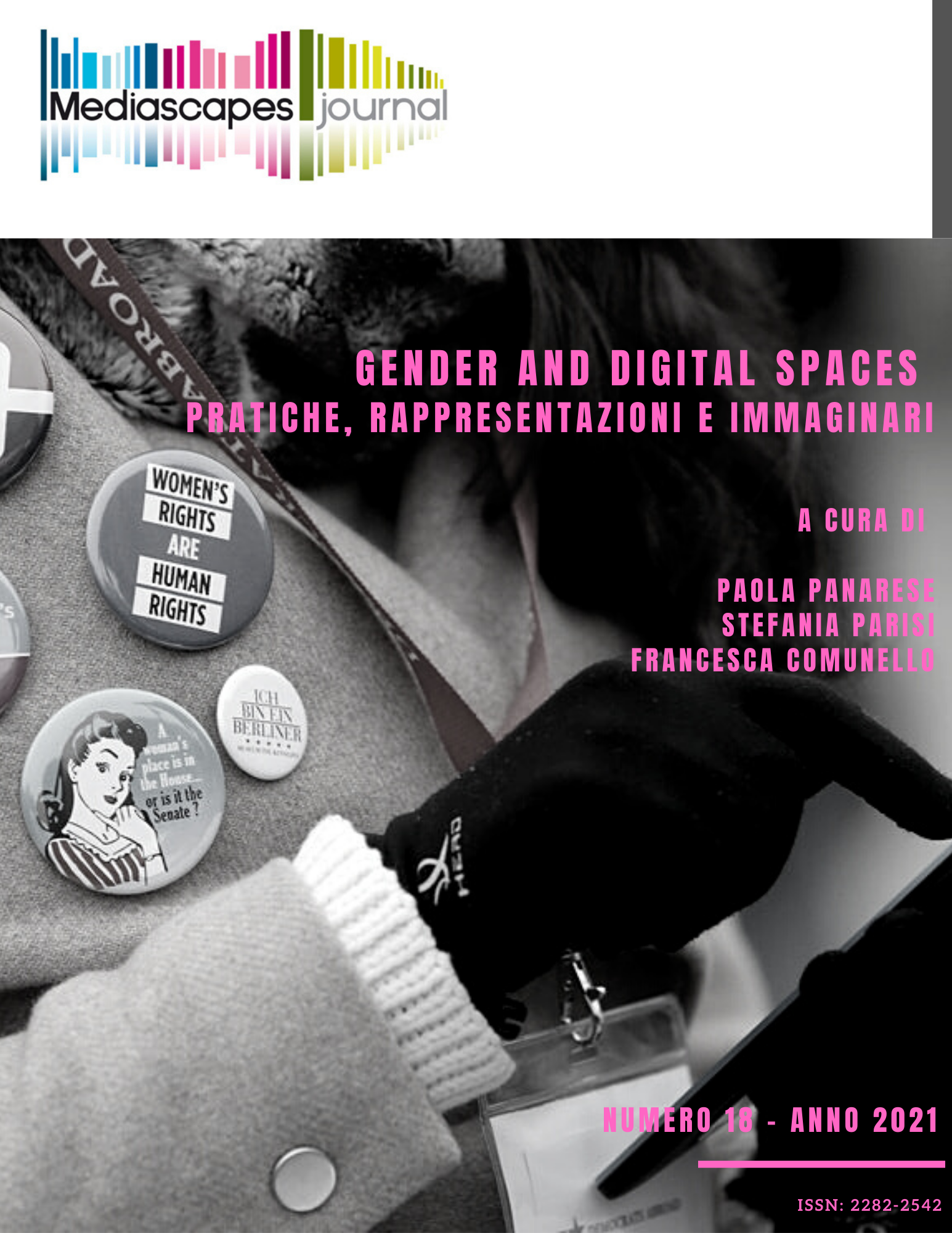È uno “sporco lavoro”, ma qualcuna\o lo deve fare. Studiare il rapporto tra sesso, sessualità, e media digitali
Keywords:
genere, sessualità, media digitaliAbstract
Sex and sexuality hold considerable social and political importance. With the ever more constant presence of digital media in our lives, the relationship between communication technologies, sex and sexuality has become a priority issue for policy makers and institutions, especially in regard to young people. Simultaneously and, in recent years, we have seen an increase in studies in the field of sex media (Attwood 2018), with a certain predominance of works from the psychological and medical fields. Nonetheless, there is a scarce quantity of work that focuses on what it means for researchers to work in this field. Recalling the concept of 'dirty work', this paper serves as a starting point for a broader discussion on what it means to study the relationship between (digital) media, sexuality and young people in sociology and media studies, in Italy. It pays particular attention to the recognition of this field of study within academia, teaching, research, phases of results publication and personal planning. This work also insists on the need for full recognition of the importance and value of studies that concern the perceptions, preferences, assumptions, and social and cultural conditions surrounding practices such as sexting, erotic chat, sharing sexually explicit photos, dating and searching for sexual information, among others. This paper ultimately defines the main road that will allow sociology and media studies to take back territory that has long been the prerogative of medicine and psychology. In turn, this will provide educators, policy makers, health professionals and other stakeholders new tools to support the creation of gazes more inclined to understand than judge, with an eye to the political form of sexuality, the logic of the media and the sexual citizenship of young people.
Downloads
Published
How to Cite
Issue
Section
License

This work is licensed under a Creative Commons Attribution 4.0 International License.
Mediascapes Journal is published under a Creative Commons Attribution Licence 4.0.
With the licence CC-BY, authors retain the copyright, allowing anyone to download, reuse, re-print, modify, distribute and/or copy their contribution. The work must be properly attributed to its author. It should be also mentioned that the work has been first published by the journal Anuac.
Having published these contributions for the first time, Mediascapes Journal will have the right to publish them integrally or partially as reprints or possibly as part of a thematic issue, in both digital and printed format.
It is not necessary to ask further permissions both to author or the journal.


